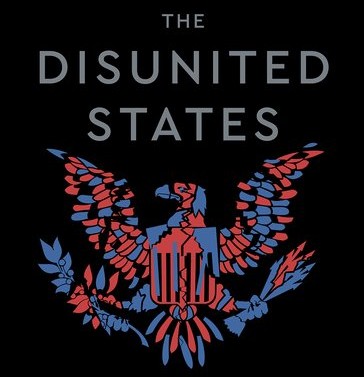Secession in the US: Could It Happen?
Many observers have grimly predicted that a divorce between red and blue America could well happen. Professor Ryan Griffiths answered a few questions about how likely is this possibility, and would it really produce a beneficial outcome?
There is a growing interest in secession, or what some refer to as a national divorce between Red and Blue America. There is a developing literature on this topic, and one Axios poll found that 20% of Americans support a national divorce.
The key factor driving this interest in secession is polarization. Whether it is the Red-State secessionists, the BlueExiters, the California Independence Party, or the Texas Nationalists, they all point to unstoppable polarization and political dysfunction as the reason secession is necessary. They have lost faith in the American political system.
The book outlines three common arguments that secessionists make: (1) That the two sides have irreconcilable differences (the polarization argument); (2) That secession is a legal right; and (3) That smaller political units are better. The book draws on interviews with secessionist organizations, and considerable time is spent developing their positions.
The key claim behind secession in America is the polarization argument—what I call the argument of irreconcilable differences. That argument is right in the sense that polarization is a serious and growing problem. It leads to political dysfunction, a crisis of governance, and a gradual erosion in the public trust. A recent Times/Siena survey found that 64% of Americans think the country it too politically divided to solve its problems.
I agree that polarization is a problem that needs to be addressed. However, my response is that secession is the wrong solution. What I bring to this debate is knowledge about how secession works globally and historically. It won’t solve America’s problems because a national divorce could only be carried out after tremendous conflict.
The other two arguments regarding the right to secede and the value of smaller political units are more academic in nature. They become relevant as arguments in the context of polarization when secessionists cast around for theoretical and normative reasons to support their position. But neither argument is particularly convincing. The argument for a legal right runs against the 1869 Supreme Court decision Texas v White, which ruled that unilateral secession was unconstitutional. The argument that smaller political units are better is the weakest argument, in my view, and the supporting evidence is quite debatable. Having said that, both arguments are fascinating, and I encourage those interested to check out the related chapters.
The iconic example for most Americans is of course the US Civil War, where around 600,000 people died. However, there are many more examples of failed secession from Scotland to Biafra to Kurdistan. There about 70 secessionist movements currently around the world, but that figure ignores many of the very small or micro movements. In February, I attended a Summit of Independence Movements and learned that my home state of Florida has a tiny secessionist movement. Obviously, there is a big difference between two people claiming independence and two million.
A key point in the book is that most secessionist movements fail. A major reason is that the existing set of sovereign states—these are the full United Nations member states – have control over who can secede and join their ranks. There are clear club-like characteristics to what I call the Sovereignty Club. They not only control admittance to the club, but they have strong incentives for limiting admission (e.g. not losing territory). As a result, there is a status quo bias to the Sovereignty Club, and gaining admittance is very difficult. Roughly half of secessionist efforts end in violence, and secessionism is one of the chief causes of war in the international system. South Sudan seceded in 2011 and became a recognized state, but that came after decades of civil war.
That doesn’t mean that secession never works out peacefully. But when it does, it is almost always because certain conditions hold. There is a clearly defined nation that is seen as distinct. It is regionally concentrated, divided from the rest of the country by clear internal borders, and it possesses some special administrative status that sets it apart. These were the conditions that enabled the so-called Velvet Divorce between Czechia and Slovakia. But crucially, none of those conditions hold with the idea of an American divorce into a Redland and Blueland.
There are many reasons that drive people to embrace secession. In other regions of the world, it may be because the nation in question is oppressed and marginalized from politics. The West Papuans of Indonesia come to mind. But of course, these are not the conditions that currently inspire secessionists in America. The key factor here is frustration with American politics.
More generally, I think the idea of secession can activate a kind of rebel instinct in people. In interviews with secessionists around the world, I’ve been struck by their commitment to the cause, their belief in their righteousness, and their faith that they will win. At close range, these movements can be intoxicating. Indeed, they are full of hope. I wrote about this in a 2021 book, “Secession and the Sovereignty Game,” and I referenced a line from the Star Wars spinoff, Rogue One, where the chief protagonist declares: “Rebellions are built on hope.”
Reducing polarization and finding common ground is a major problem. I have many terrific colleagues who study and write about this challenge. What I offer in the book is not a solution to this problem, but rather a series of informed arguments as to why secession is not the solution some wish it to be. I wanted to disabuse the reader of the view that secession will solve America’s problems. That said, I do end the book on a hopeful note by saying that Americans have more in common than we often think, that the country is a positive light in the world, and that it would be a great shame to let that go.




